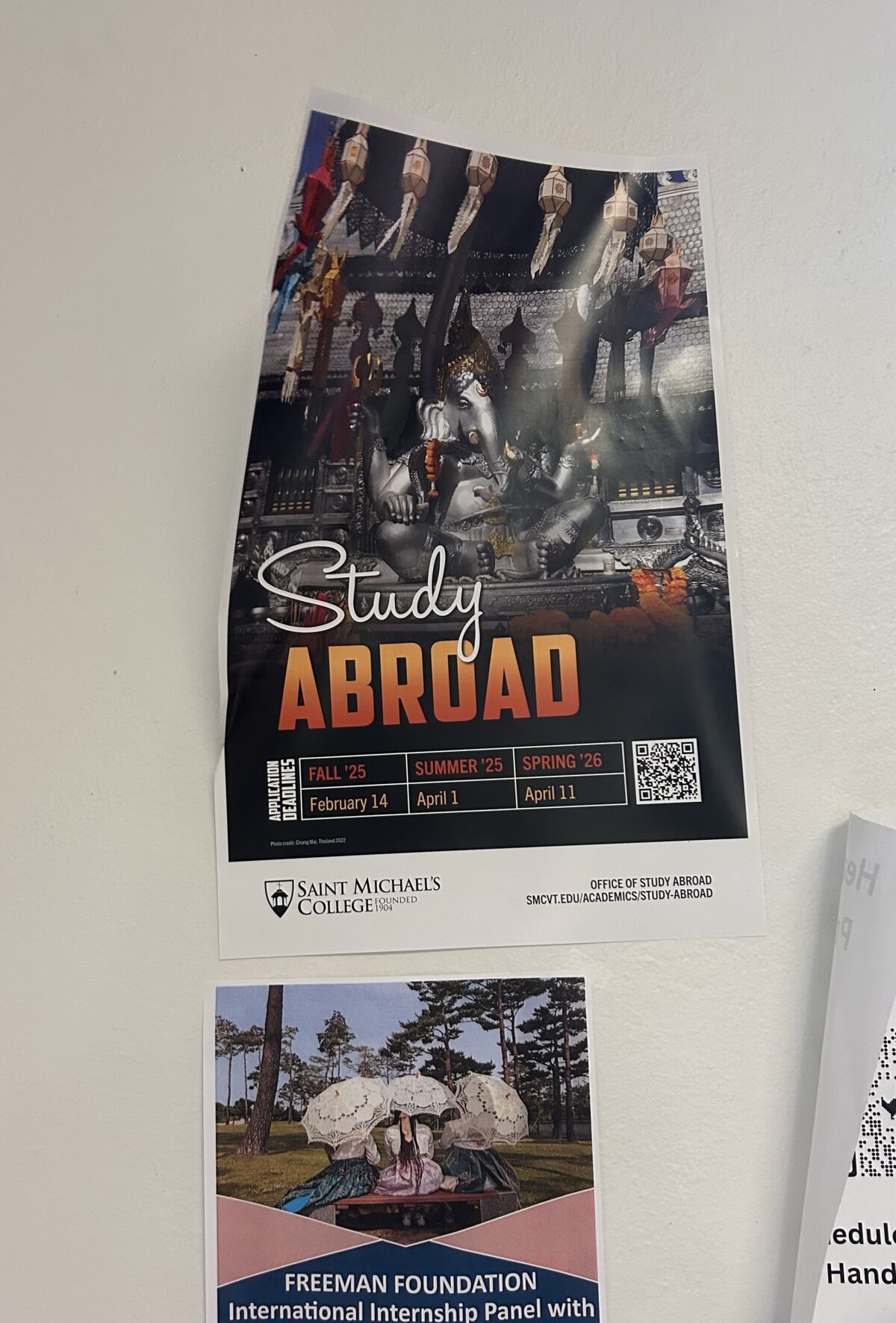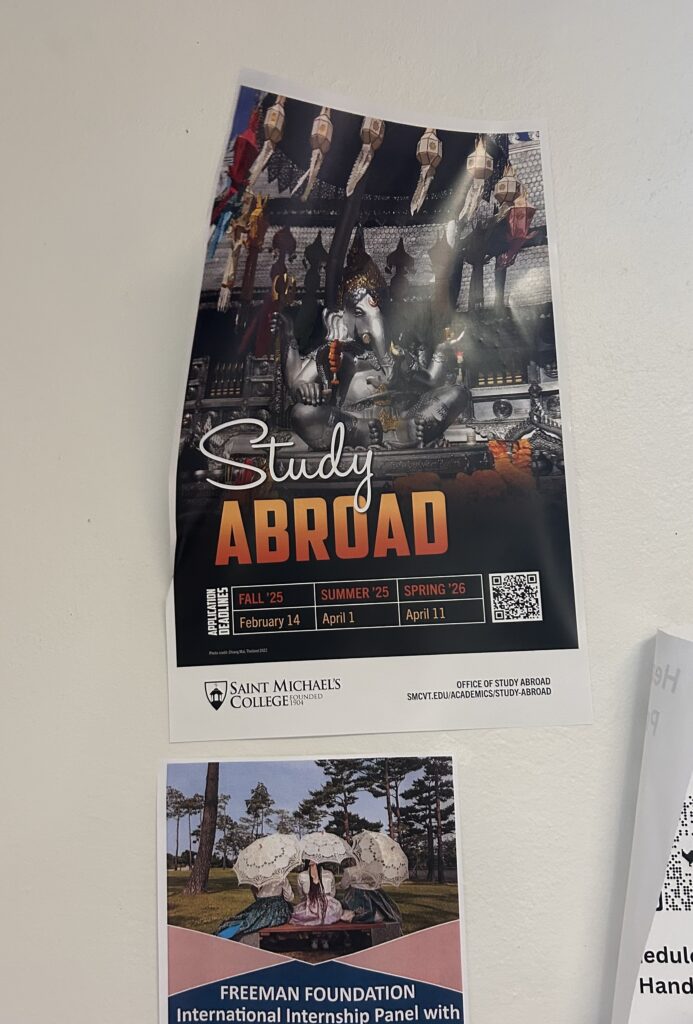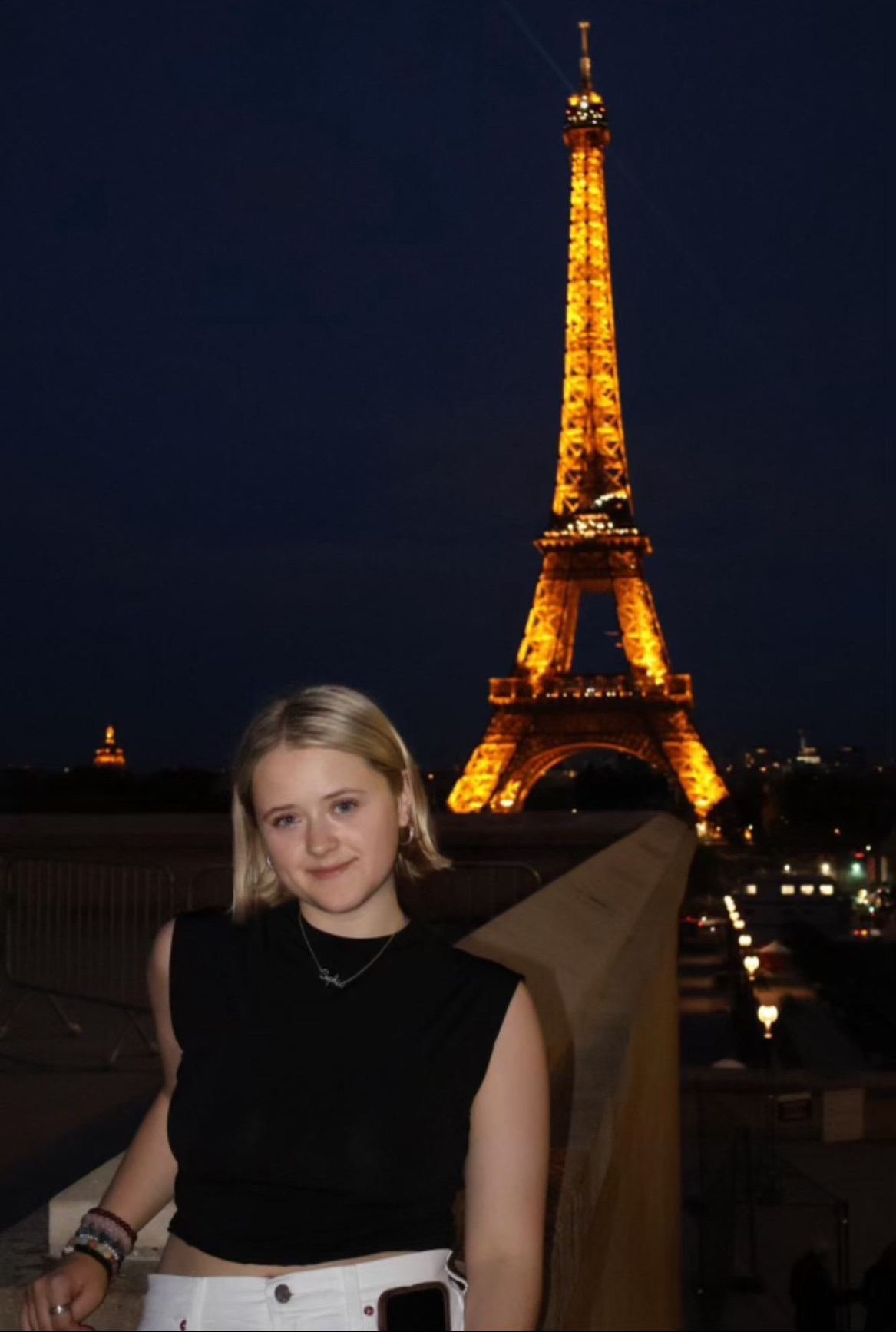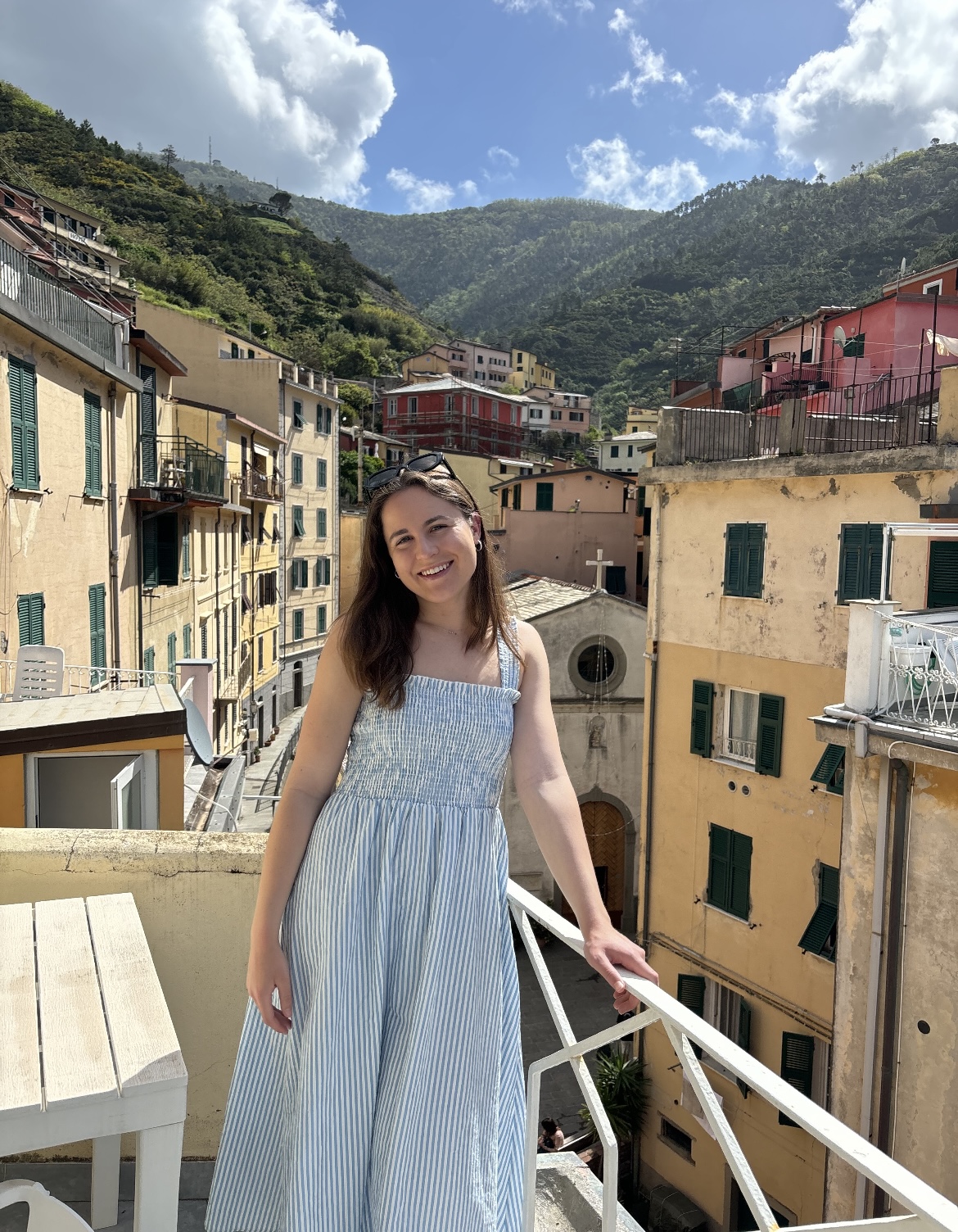
Caitlin Herz | Staff Writer | cherz@mail.smcvt.edu
Dozens of flyers promoting study abroad are posted around campus, catching students’ eyes.

Studying abroad is a requirement for several majors at St. Michael’s College. While studying abroad is a transformative experience, some students run into financial problems, said Peggy Imai, director of study abroad at the college.
According to Imai, these majors include digital media and communications, international relations, and anthropology. However, the three majors have different details within the requirements.
A student studying anthropology needs to have a “cross-cultural engagement experience,” Imai said.
This means an anthropology student does not need to leave the country to fulfill their requirement. They have the option to do a service trip with a different community while still staying in the country.
A digital media and communications student needs to go outside of the United States to fulfill their study abroad requirement.
Jeffrey Ayres, professor of political science and international relations said, “For international relations, we feel an important addition to one’s major is a high-impact, co-educational experience that ideally deeply immerses a student in a foreign culture.”
Studying abroad became a requirement for digital media and communications students in the early 2000s, said Jon Hyde, professor of digital media and communications.
“We brought it in because the entire faculty felt like it was such a good experience, it was one of those things where students would go abroad and they’d come back almost entirely different people, more engaged, more knowledgeable, more curious, and wanting to explore more of themselves,” Hyde said.
Students who are planning on studying abroad only receive 75% of scholarships and aid which can be a struggle for students financially, said Imai.
Imai said the percentage of applied scholarships has gotten lower and lower throughout the years.
“There came a time when it was 100% of aid. Then it was 90%, and then every year the number just kept getting cut. And finally, I just said ‘We need to stop doing this because students can’t plan out their budgets two years in advance.’ So sort of a middle ground came with 75%,” Imai said.
Student scholarships provide for all study abroad opportunities, but the financial aspect can become more complicated when deciding between a semester abroad, a summer abroad, or one of the shorter length study trips, Imai said.
When planning for study abroad, the different costs of the options are something to take into account for the decision, Imai said.
Sophie Burt, ‘26, digital media and communications major, fulfilled her study abroad requirement by completing an internship in Paris, France this summer.
This internship was fully funded by St. Michael’s College. Burt said she received eight credits from the program which was run through Boston University.
“They paid for our health insurance, flights, Boston University tuition, and housing.” Burt said.
Burt also received a $1,000 meal stipend while living in Paris. This internship is an amazing opportunity and provides a lot of financial support, Burt said, the St. Michael’s College faculty did not discuss how to budget your spending money while living in a different country.

Students apply for these internships and then a selection process takes place with the faculty in study abroad, such as Peggy Imai.
Even though Burt completed this internship on the English-speaking track, Imai said that language proficiency is something the faculty takes into account when deciding which students are best fit for the internship.
Burt said she was very grateful she was able to have this opportunity, “If I didn’t get this scholarship to go to Paris, I would have to do a semester or even a two-week option, because for DMC you need to study abroad to graduate. I wouldn’t have been able to afford that.”
The semester abroad is the traditional route students typically take to fulfill the requirement, Hyde said. He also said the pricing for housing depends completely on where that student is studying.
“Students frequently say ‘hey I want to go to Australia,’ not realizing those costs are going to be much more than they are going to be in places like Vietnam, Indonesia, or Thailand,” Hyde said.
Catherine O’Donnell, ‘25, a digital media and communications student, completed her semester abroad in Florence, Italy this past spring.
O’Donnell said that she left Italy with a new sense of independence and confidence in her travel skills.
“I’d been saving like crazy for the past year, it felt like everything I was making over the summer and during the school year was going towards saving for abroad.” O’Donnell said.

O’Donnell said that she did not face many issues with study abroad in a financial sense However, she said planning and budgeting with money is not something the St. Michael’s College faculty discusses when guiding students through the process.
O’Donnell said, “We didn’t talk a lot about financial stuff, I don’t recall that being a thing. I’m sure if I asked they would have helped me though.”
Another study abroad option for students is a faculty-led two to four week study trips, Imai said.
Scholarships and aid transfers to these study trips, but a study trip would not be the best option for a student who is struggling with the financial aspect, Imai said.
Norah Beckwith, ‘26, studying digital media and communications, completed their abroad requirement by spending three weeks in Montreal, Canada.

Beckwith said that the adjustment to a new language and culture was challenging at first, even with just being somewhere close like Montreal.
Beckwith said, “You’re paying for four credits, as well as boarding and you were guaranteed to have two meals at home everyday.”
The goal of study abroad is to immerse a student into an entirely new culture and for them to come back with new skills gained through experience, Hyde said.
Students can contact Peggy Imai if they are interested in studying abroad.

